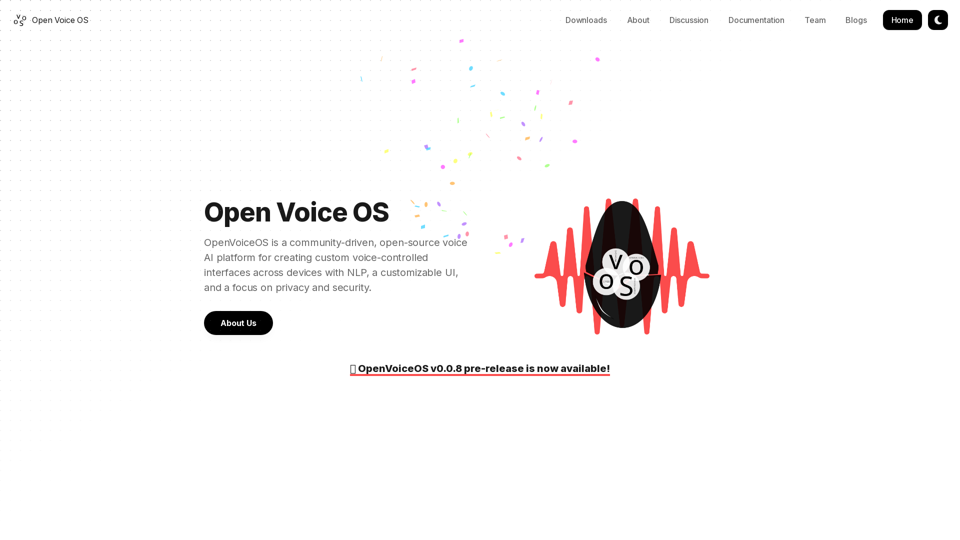What is Open Voice OS?
Open Voice OS is a community-driven, open-source voice AI platform for creating custom voice-controlled interfaces across devices with NLP, a customizable UI, and a focus on privacy and security.
Features of Open Voice OS
Open Voice OS is powered by developers around the globe from various Linux and Foss communities, making it a community-driven platform for developers interested in making cutting-edge voice assistance technology available to everyone. It is multi-platform, allowing users to build custom voice-controlled interfaces on various devices, including embedded headless devices or single board computers with screens. Open Voice OS is also experimental at its core, allowing users to experience new features before they are integrated into other Linux-based open-source voice assistant projects.
How to Use Open Voice OS
Getting started with Open Voice OS is simple. Users can install OVOS using Docker or Python. For developers, installing OVOS using Python Virtual Environment allows them to fiddle with the code. For a more stable and easy way to run OVOS, Docker is the recommended option. Open Voice OS also offers a prebuilt image for Raspberry Pi or Mycroft devices.
Price of Open Voice OS
Open Voice OS is free and open-source, making it accessible to everyone.
Helpful Tips for Open Voice OS
- Open Voice OS is a community-driven platform, and users can contribute to the project by testing, reporting bugs, writing documentation, creating skills, or contributing code.
- Open Voice OS is compatible with Mycroft, and many of its changes are submitted to Mycroft to include in their projects at their discretion.
- By default, ovos-core does not require a backend internet server to operate, and some skills can be accessed entirely offline.
Frequently Asked Questions
Q: How did Open Voice OS start?
Open Voice OS started as MycroftOS and was renamed to OpenVoiceOS to avoid trademark issues.
Q: What is the relationship between Open Voice OS and Mycroft?
Both projects are fully independent, and Open Voice OS has been committed to keeping its components compatible with Mycroft.
Q: Does Open Voice OS work offline?
By default, ovos-core does not require a backend internet server to operate, and some skills can be accessed entirely offline.
Q: How can I contribute to Open Voice OS?
Users can contribute to Open Voice OS by testing, reporting bugs, writing documentation, creating skills, or contributing code.
